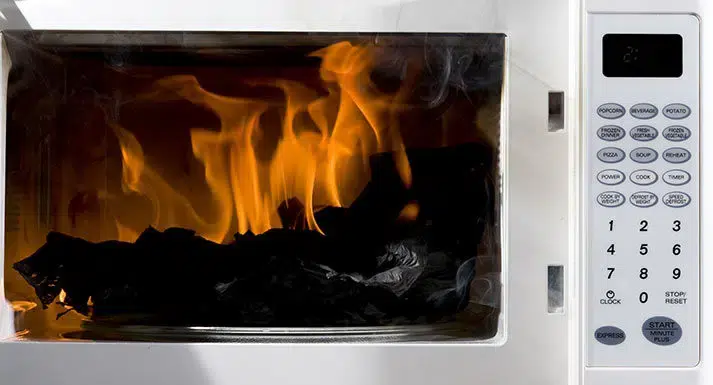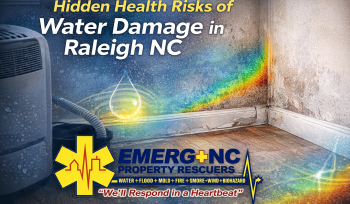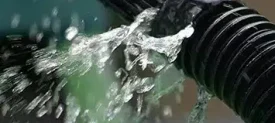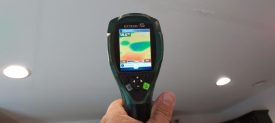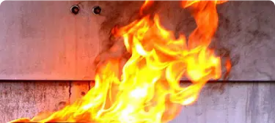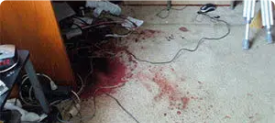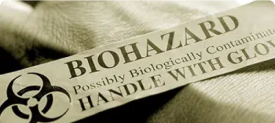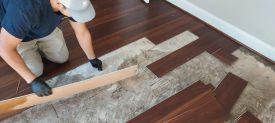What are the best ways to secure my property after fire related damage?
Lock and secure your property when not occupied to prevent looting. Keep in mind that alarms may malfunction if the electricity or telephone service has been interrupted.
How can I estimate the extent of the damage?
Start with a closer inspection of the property to assess the damage to the exterior. Only if determined safe, walk around the building and lot to observe and gather information. Now enter the structure. Taking extreme precautions, start from the top and document the damage.
What can I do to reduce the chances of fire damage in my bedroom?
Pay attention to electric blankets. Don’t go to sleep with an electric blanket unless it has thermostatic controls or a overheat protector. Keep the electric blanket flat to prevent damage to the internal wiring. Install smoke detectors and test them regularly. Be extremely careful with portable heaters and keep a 3ft. clearance between them and combustibles. Refrain from smoking in bed.
What are grease fires and how can I fight grease fires?
A grease fire occurs when oil or greasy foods are heated and ignite. The simplest way to fight a grease fire is to carefully slide a lid over the pan. Do not fight grease fires with water because water causes the grease to splatter and the fire to spread.
- Valuable Safety Tip: Baking soda can be used to suffocate grease fire.
- Valuable Safety Tip: Do not try to take a grease fire outdoors. The pan will be too hot to carry.
How can I safely store flammable liquid?
Try avoiding storing flammable liquid inside your home. It is recommended to store in approved containers and make sure sealed. Keep away from heat. If stored in the basement, keep clearance (at least 3 feet) around appliances such as the furnace or hot water heater.
Is it safe to store appliances such as a loan mower or a snow blower in the basement?
No. the flammable liquids in these appliances release flammable vapors that can ignite and start a fire.
What are the important safety rules regarding bathroom appliances?
The most important safety rule for bathroom appliances is to make sure they are undamaged and that all cords and wires are insulated. In addition, make sure that these appliances are installed within a safe distance away from water to eliminate shocks and electrocution hazards.
Are there any specific safety measures for electrical boards?
Yes. Electrical boards can be a real fire threat if overloaded or over fused. Keep you electrical box clean and tidy. Do not bypass circuit fuses and never use extension cords for items that need a permanent supply of electricity.
What are the safety rules to prevent fire in the kitchen?
There are 5 basic safety rules you must remember while cooking in the kitchen:
- Keep pot handles turned inward, away from the edge of the stove.
- If possible, don’t wear long sleeves. Long loose sleeves, hanging over the stove while cooking, are likely to catch fire.
- Be sure to supervise the oven or gas and to turn them off when not needed.
- Place fabrics such as towels and dish rags away from a gas or electric range.
- Safely store flammable liquids such as gasoline and cleaning fluids away from any fire or heat sources.
How can I test my smoke detector and how often should I do it?
Smoke detectors should be tested once a month. The simplest test is to press the test button on your detector and check that it beeps loudly. It is also important to test the batteries and replace them every 6 months.
What can I do to reduce fire hazards in my backyard?
There are a few steps you can take to increase fire safety in your backyard.
- Plant fire resistant plants such as hard wood trees.
- Keep you backyard clean from dry leaves and combustible debris.
- Thin out your trees and keep a 15 feet space between tree crowns.
- Prevent fire from spreading from the ground to the trees by removing limbs and dead branches from 6 to 10 feet of the ground.
What are the safety rules, required to secure my office against fire?
To promote fire safety in the office you should follow the following tips:
- Keep heat generating equipment away from combustibles and turn it off while not in use.
- Follow all electrical safety precautions.
- Be attentive to any gas leaks. Call the gas company technician to investigate every suspected gas leak.
- Install smoke detectors.
I am planning to replant my backyard. What should I do to reduce fire hazards?
Here are some suggestions to promote fire safety in your new backyard:
- If possible, plant fire resistant plants. Generally, fire resistant plants characteristics include: supple leaves, water-like sap, thicker bark, high moisture content.
- Plant and maintain your trees. Keep 15 feet clearance between tree crowns to reduce the chance of fire spreads.
- Remove limbs and dead branches from 6 to 10 feet of the ground to prevent fire from spreading from the ground to the trees.

